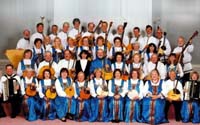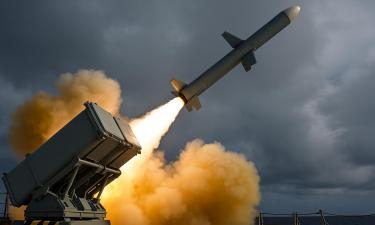Russians forget Dostoevsky and fall in love with Tom Cruise and Britney Spears
It is no longer news that after the collapse of the Soviet Union Russian culture is in state of deep decline. At the beginning of the 90s the number of new films, books and theatrical performances went down greatly. Today we can divide all the achievements of Russian culture into two groups:

1. modern interpretation of Soviet pre-revolutionary period in Russian culture;
2. copying the examples of western cultures.
When we speak about the cultural decline in Russia we should, of course, mention the decrease in cultural level of average Russians. The British newspaper The Independent did a research trying to define the cultural level of Russian people. The results were not promising.
From an early age Soviet school children were spoon-fed high culture, shown round art galleries packed with icons and old masters, and taken to see ballets such as Tchaikovsky's Swan Lake. But 15 years after the USSR's collapse a poll revealed that today's generation of Russians prefers Tom Cruise and Britney Spears to a night at the opera or a trip to the Hermitage Museum.
According to an authoritative survey by the Moscow-based Public Opinion Foundation, Russia's image as a nation of sophisticated consumers of high culture is an outdated myth. The country that gave the world Fyodor Dostoevsky, Anton Chekhov and the abstract painter Kazimir Malevich has, it would seem, lost its delicate tastes and artistic talent.
The poll revealed that Russians overwhelmingly preferred the latest Hollywood blockbuster or the pop song of the moment to anything more demanding.
Only 8 per cent profess to have any interest in the ballet, 6 per cent in the opera, and more than one-third (37 per cent) have never visited an art gallery. Indeed Russia may boast some of the world's greatest collections of art, in Moscow's Tretyakov Gallery and in St Petersburg's Hermitage museum, but most Russians have never paid a visit to either institution.
Only a quarter of the poll's respondents said they had been to the Tretyakov or the Hermitage and just 20 per cent said they were interested in art. Russia may have a rich history of producing world-class composers such as Dmitri Shostakovich and Modest Mussorgsky, but the poll revealed that people were more interested in "modern dance" than classical music.
Only 18 per cent of the poll's respondents expressed an interest in listening to classical music, a figure dwarfed by those who said they loved pop music (38 per cent). Theatre fared a little better, with 31 per cent saying they enjoyed watching a play but still hardly a ringing endorsement. Indeed, the outlook for high culture is a far cry from Soviet days when citizens were encouraged to sample something that used to be the sole preserve of the Tsarist elite and had access to top-quality culture at rock-bottom proletarian prices.
The poll's organiser, Lyudmila Presnyakova, said it was a mistake to see the figures as a gloomy indictment of today's society.
"People don't have access to art galleries in many towns and cities whereas 98 per cent of the population has a TV. I expected even lower figures," she said. "To expect that 80 per cent of people should go to the Tretyakov Gallery or the Hermitage ... and to think it a catastrophe if they don't ... is strange to say the least."
Though she conceded that more high culture was consumed in Soviet times she said she did not think there had been a "radical" change in the past 15 years.
Yuri Levada, a rival pollster, conceded there had been a big change and blamed the rise of television and the internet. "TV is gradually devouring all of Russians' leisure time," he said.
Source: The Independent
Prepared by Alexander Timoshik
Pravda.ru
Subscribe to Pravda.Ru Telegram channel, Facebook, RSS!




